
The story of the greengrocer and the parrot and the parrot’s spilling the oil in the shop حکایت بقال و طوطی و روغن ریختن طوطی در دکان
بود بقالی و وی را طوطیی
خوش نوایی سبز و گویا طوطیی
There was a greengrocer who had a parrot, a sweet-voiced green talking parrot.
بر دکان بودی نگهبان دکان
نکته گفتی با همه سوداگران
(Perched) on the bench, it would watch over the shop (in the owner’s absence) and talk finely to all the traders.
در خطاب آدمی ناطق بدی
در نوای طوطیان حاذق بدی
In addressing human beings it would speak (like them); it was (also) skilled in the song of parrots.
جست از سوی دکان سویی گریخت
شیشههای روغن گل را بریخت
(Once) it sprang from the bench and flew away; it spilled the bottles of rose-oil.
از سوی خانه بیامد خواجهاش
بر دکان بنشست فارغ خواجهوش
Its master came from the direction of his house and seated himself on the bench at his ease as a merchant does.
دید پر روغن دکان و جامه چرب
بر سرش زد گشت طوطی کل ز ضرب
(Then) he saw the bench was full of oil and his clothes greasy; he smote the parrot on the head: it was made bald by the blow.
روزکی چندی سخن کوتاه کرد
مرد بقال از ندامت آه کرد
For some few days it refrained from speech; the greengrocer, in repentance, heaved deep sighs,
ریش بر میکند و میگفت ای دریغ
کافتاب نعمتم شد زیر میغ
Tearing his beard and saying, “Alas! the sun of my prosperity has gone under the clouds.
دست من بشکسته بودی آن زمان
که زدم من بر سر آن خوش زبان
Would that my hand had been broken (powerless) at the moment when I struck (such a blow) on the head of that sweet-tongued one?”
هدیهها میداد هر درویش را
تا بیابد نطق مرغ خویش را
He was giving presents to every dervish, that he might get back the speech of his bird.
بعد سه روز و سه شب حیران و زار
بر دکان بنشسته بد نومید وار
After three days and three nights, he was seated on the bench, distraught and sorrowful, like a man in despair,
مینمود آن مرغ را هر گون شگفت
تا که باشد کاندر آید او بگفت
Showing the bird every sort of hidden (unfamiliar) thing (in the hope) that maybe it would begin to speak.
جولقیی سر برهنه میگذشت
با سر بیمو چو پشت طاس و طشت
Meanwhile a bare-headed dervish, clad in a jawlaq (coarse woollen frock), passed by, with a head hairless as the outside of bowl and basin.
طوطی اندر گفت آمد در زمان
بانگ بر درویش زد که هی فلان
Thereupon the parrot cried to the dervish, as rational persons (might have done).
از چه ای کل با کلان آمیختی
تو مگر از شیشه روغن ریختی
How were you mixed up with the bald, O baldpate? Did you, then, spill oil from the bottle?”
از قیاسش خنده آمد خلق را
کو چو خود پنداشت صاحب دلق را
The bystanders laughed at the parrot’s inference, because it deemed the wearer of the frock to be like itself.
کار پاکان را قیاس از خود مگیر
گر چه ماند در نبشتن شیر و شیر
Do not measure the actions of holy men by (the analogy of) yourself, though shér (lion) and shír (milk) are similar in writing.
جمله عالم زین سبب گمراه شد
کم کسی ز ابدال حق آگاه شد
On this account the whole world is gone astray: scarcely any one is cognisant of God’s Abdál (Substitutes).
همسری با انبیا برداشتند
اولیا را همچو خود پنداشتند
They set up (a claim of) equality with the prophets; they supposed the saints to be like themselves.
گفته اینک ما بشر ایشان بشر
ما و ایشان بستهی خوابیم و خور
“Behold,” they said, “we are men, they are men; both we and they are in bondage to sleep and food.”
این ندانستند ایشان از عمی
هست فرقی در میان بیمنتها
In (their) blindness they did not perceive that there is an infinite difference between (them).
هر دو گون زنبور خوردند از محل
لیک شد ز ان نیش و زین دیگر عسل
Both species of zanbúr ate and drank from the (same) place, but from that one (the hornet) came a sting, and from this other (the bee) honey.
هر دو گون آهو گیا خوردند و آب
زین یکی سرگین شد و ز ان مشک ناب
Both species of deer ate grass and drank water: from this one came dung, and from that one pure musk.
هر دو نی خوردند از یک آب خور
این یکی خالی و آن پر از شکر
Both reeds drank from the same water-source, (but) this one is empty and that one full of sugar.
صد هزاران این چنین اشباه بین
فرقشان هفتاد ساله راه بین
Consider hundreds of thousands of such likenesses and observe that the distance between the two is (as great as) a seventy years’ journey.
این خورد گردد پلیدی زو جدا
آن خورد گردد همه نور خدا
This one eats, and filth is discharged from him; that one eats, and becomes entirely the light of God.
این خورد زاید همه بخل و حسد
و آن خورد زاید همه نور احد
This one eats, (and of him) is born nothing but avarice and envy; that one eats, (and of him) is born nothing but the Light of the One (God).
این زمین پاک و ان شوره ست و بد
این فرشتهی پاک و ان دیو است و دد
This one is good (fertile) soil and that one brackish and bad; this one is a fair angel and that one a devil and wild beast.
هر دو صورت گر بهم ماند رواست
آب تلخ و آب شیرین را صفاست
If both resemble each other in aspect, it may well be (so): bitter water and sweet water have (the same) clearness.
جز که صاحب ذوق کی شناسد بیاب
او شناسد آب خوش از شوره آب
Who knows (the difference) except a man possessed of (spiritual) taste? Find (him): he knows the sweet water from the brine.
سحر را با معجزه کرده قیاس
هر دو را بر مکر پندارد اساس
Comparing magic with (prophetic) miracle, he (the ignorant one) fancies that both are founded on deceit.
ساحران موسی از استیزه را
بر گرفته چون عصای او عصا
The magicians (in the time) of Moses, for contention’s sake, lifted up (in their hands) a rod like his,
زین عصا تا آن عصا فرقی است ژرف
زین عمل تا آن عمل راهی شگرف
(But) between this rod and that rod there is a vast difference; from this action (magic) to that action (miracle) is a great way.
لعنة الله این عمل را در قفا
رحمه الله آن عمل را در وفا
This action is followed by the curse of God, (while) that action receives in payment the mercy (blessing) of God.
کافران اندر مری بوزینه طبع
آفتی آمد درون سینه طبع
The infidels in contending (for equality with the prophets and saints) have the nature of an ape: the (evil) nature is a canker within the breast.
هر چه مردم میکند بوزینه هم
آن کند کز مرد بیند دمبهدم
Whatever a man does, the ape at every moment does the same thing that he sees done by the man.
او گمان برده که من کژدم چو او
فرق را کی داند آن استیزه رو
He thinks, “I have acted like him”: how should that quarrelsome-looking one know the difference?
این کند از امر و او بهر ستیز
بر سر استیزه رویان خاک ریز
This one (the holy man) acts by the command (of God), and he (the apish imitator) for the sake of quarrelling (rivalry). Pour dust on the heads of those who have quarrelsome faces!
آن منافق با موافق در نماز
از پی استیزه آید نی نیاز
That (religious) hypocrite joins in ritual prayer with the (sincere) conformist (only) for quarrelling’s sake, not for supplication.
در نماز و روزه و حج و زکات
با منافق مومنان در برد و مات
In prayer and fasting and pilgrimage and alms-giving the true believers are (engaged) with the hypocrite in (what brings) victory and defeat.
مومنان را برد باشد عاقبت
بر منافق مات اندر آخرت
Victory in the end is to the true believers; upon the hypocrite (falls) defeat in the state hereafter.
گر چه هر دو بر سر یک بازیاند
هر دو با هم مروزی و رازیاند
Although both are intent on one game, (though) both (in the present life) are (travelling) together (like) the man of Merv and the man of Rayy,
هر یکی سوی مقام خود رود
هر یکی بر وفق نام خود رود
Each one goes to his (proper) abiding-place; each one fares according to his name.
مومنش خوانند جانش خوش شود
ور منافق تیز و پر آتش شود
If he be called a true believer, his soul rejoices; and if (he be called) “hypocrite,” he becomes fierce and filled with fire (rage).
نام او محبوب از ذات وی است
نام این مبغوض از آفات وی است
His (the true believer’s) name is loved on account of its essence (which is true faith); this one’s (the hypocrite’s) name is loathed on account of its pestilent qualities.
میم و واو و میم و نون تشریف نیست
لفظ مومن جز پی تعریف نیست
(The four letters) mím and wáw and mím and nún do not confer honour: the word múmin (true believer) is only for the sake of denotation.
گر منافق خوانیاش این نام دون
همچو کژدم میخلد در اندرون
If you call him (the hypocrite) hypocrite, this vile name is stinging (him) within like a scorpion.
گرنه این نام اشتقاق دوزخ است
پس چرا در وی مذاق دوزخ است
If this name is not derived from Hell, then why is there the taste of Hell in it?
زشتی آن نام بد از حرف نیست
تلخی آن آب بحر از ظرف نیست
The foulness of that ill name is not from the letters; the bitterness of that sea-water is not from the vessel (containing it).
حرف ظرف آمد در او معنی چو آب
بحر معنی عنده أم الکتاب
The letters are the vessel: therein the meaning is (contained) like water; (but) the sea of the meaning is (with God)—with Him is the Ummu ’l-Kitáb.
بحر تلخ و بحر شیرین در جهان
در میانشان برزخ لا یبغیان
In this world the bitter sea and the sweet sea (are divided) between them is a barrier which they do not seek to cross.
وانگه این هر دو ز یک اصلی روان
بر گذر زین هر دو رو تا اصل آن
Know that both these flow from one origin. Pass on from them both, go (all the way) to their origin!
زر قلب و زر نیکو در عیار
بیمحک هرگز ندانی ز اعتبار
Without the touchstone you will never know in the assay adulterated gold and fine gold by (using your own) judgement.
هر که را در جان خدا بنهد محک
هر یقین را باز داند او ز شک
Any one in whose soul God shall put the touchstone, he will distinguish every certainty from doubt.
در دهان زنده خاشاکی جهد
آن گه آرامد که بیرونش نهد
A piece of rubbish jumps into the mouth of a living man, and only when he ejects it is he at ease.
در هزاران لقمه یک خاشاک خرد
چون در آمد حس زنده پی ببرد
When, amongst thousands of morsels (of food), one little piece of rubbish entered (his mouth), the living man’s sense (of touch or taste) tracked it down.
حس دنیا نردبان این جهان
حس دینی نردبان آسمان
The worldly sense is the ladder to this world; the religious sense is the ladder to Heaven.
صحت این حس بجویید از طبیب
صحت آن حس بخواهید از حبیب
Seek ye the well-being of the former sense from the physician; beg ye the well-being of the latter sense from the Beloved.
صحت این حس ز معموری تن
صحت آن حس ز تخریب بدن
The health of the former arises from the flourishing state of the body; the health of the latter arises from the ruin of the body.
راه جان مر جسم را ویران کند
بعد از آن ویرانی آبادان کند
The spiritual way ruins the body and, after having ruined it, restores it to prosperity:
کرد ویران خانه بهر گنج زر
وز همان گنجش کند معمورتر
Ruined the house for the sake of the golden treasure, and with that same treasure builds it better (than before);
آب را ببرید و جو را پاک کرد
بعد از آن در جو روان کرد آب خورد
Cut off the water and cleansed the river-bed, then caused drinking-water to flow in the river-bed;
پوست را بشکافت و پیکان را کشید
پوست تازه بعد از آتش بردمید
Cleft the skin and drew out the iron point (of the arrow or spear) then fresh skin grew over it (the wound);
قلعه ویران کرد و از کافر ستد
بعد از آن بر ساختش صد برج و سد
Rased the fortress and took it from the infidel, then reared thereon a hundred towers and ramparts.
کار بیچون را که کیفیت نهد
این که گفتم هم ضرورت میدهد
Who shall describe the action of Him who hath no like? This that I have said (is what) the present necessity is affording.
گه چنین بنماید و گه ضد این
جز که حیرانی نباشد کار دین
Sometimes it (the action of God) appears like this and sometimes the contrary of this: the work of religion is naught but bewilderment.
نی چنان حیران که پشتش سوی اوست
بل چنین حیران و غرق و مست دوست
(I mean) not one bewildered in such wise that his back is (turned) towards Him; nay, but one bewildered (with ecstasy) like this and drowned (in God) and intoxicated with the Beloved.
آن یکی را روی او شد سوی دوست
و آن یکی را روی او خود روی دوست
The face of the one is set towards the Beloved, (while) the face of the other is just his own face (he is facing himself).
روی هر یک مینگر میدار پاس
بو که گردی تو ز خدمت رو شناس
Look long on the face of every one, keep watch attentively: it may be that by doing service (to Súfís) you will come to know the face (of the true saint).
چون بسی ابلیس آدم روی هست
پس به هر دستی نشاید داد دست
Since there is many a devil who hath the face of Adam, it is not well to give your hand to every hand,
ز انکه صیاد آورد بانگ صفیر
تا فریبد مرغ را آن مرغ گیر
Because the fowler produces a whistling sound in order to decoy the bird,
بشنود آن مرغ بانگ جنس خویش
از هوا آید بیابد دام و نیش
(So that) the bird may hear the note of its congener and come down from the air and find trap and knife-point.
حرف درویشان بدزدد مرد دون
تا بخواند بر سلیمی ز ان فسون
The vile man will steal the language of dervishes, that he may thereby chant a spell over (fascinate and deceive) one who is simple.
کار مردان روشنی و گرمی است
کار دونان حیله و بیشرمی است
The work of (holy) men is (as) light and heat; the work of vile men is trickery and shamelessness.
شیر پشمین از برای کد کنند
بو مسیلم را لقب احمد کنند
They make a woollen lion for the purpose of begging; they give the title of Ahmad (Mohammed) to Bú Musaylim;
بو مسیلم را لقب کذاب ماند
مر محمد را اولو الالباب ماند
(But) to Bú Musaylim remained the title of Kadhdháb (Liar), to Mohammed remained (the title of) Ulu ’l-albáb (Endowed with understanding).
آن شراب حق ختامش مشک ناب
باده را ختمش بود گند و عذاب
The wine of God, its seal (last result) is pure musk, (but) as for (the other) wine, its seal is stench and torment
Special Offers
by: Reza about (category: Masnavi)



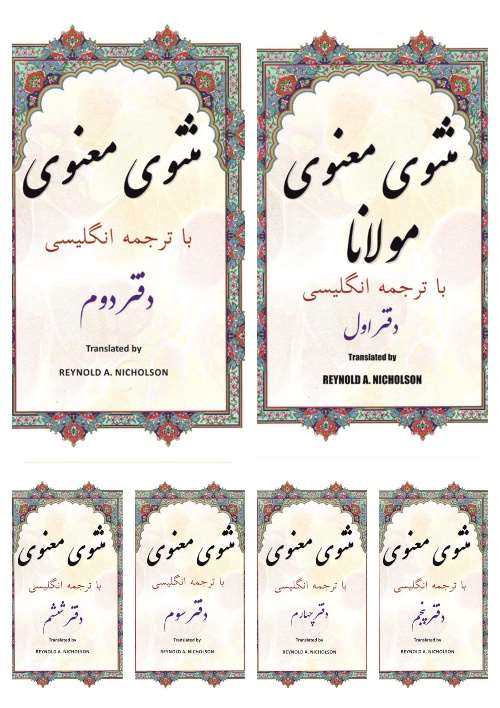
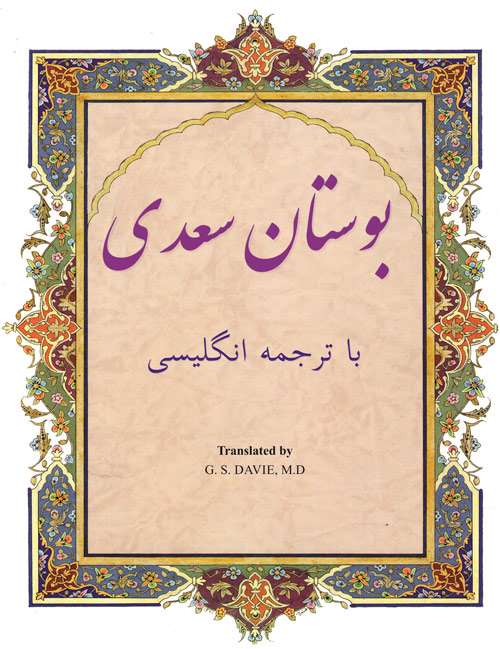
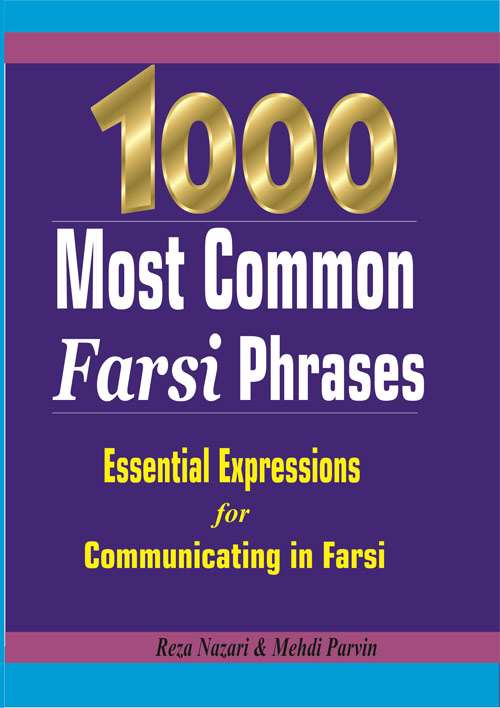
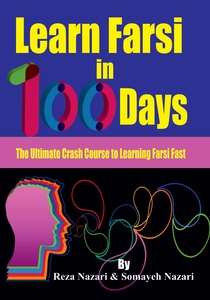






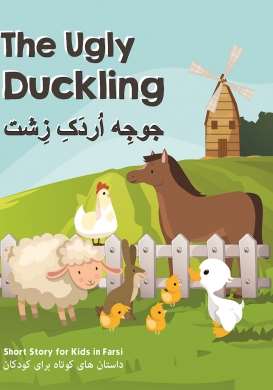
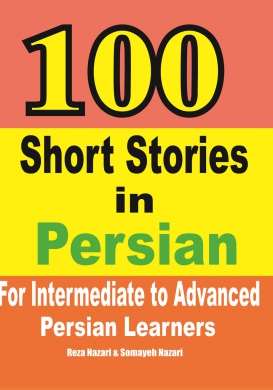

What people say about "The story of the greengrocer"?
No one replied yet.